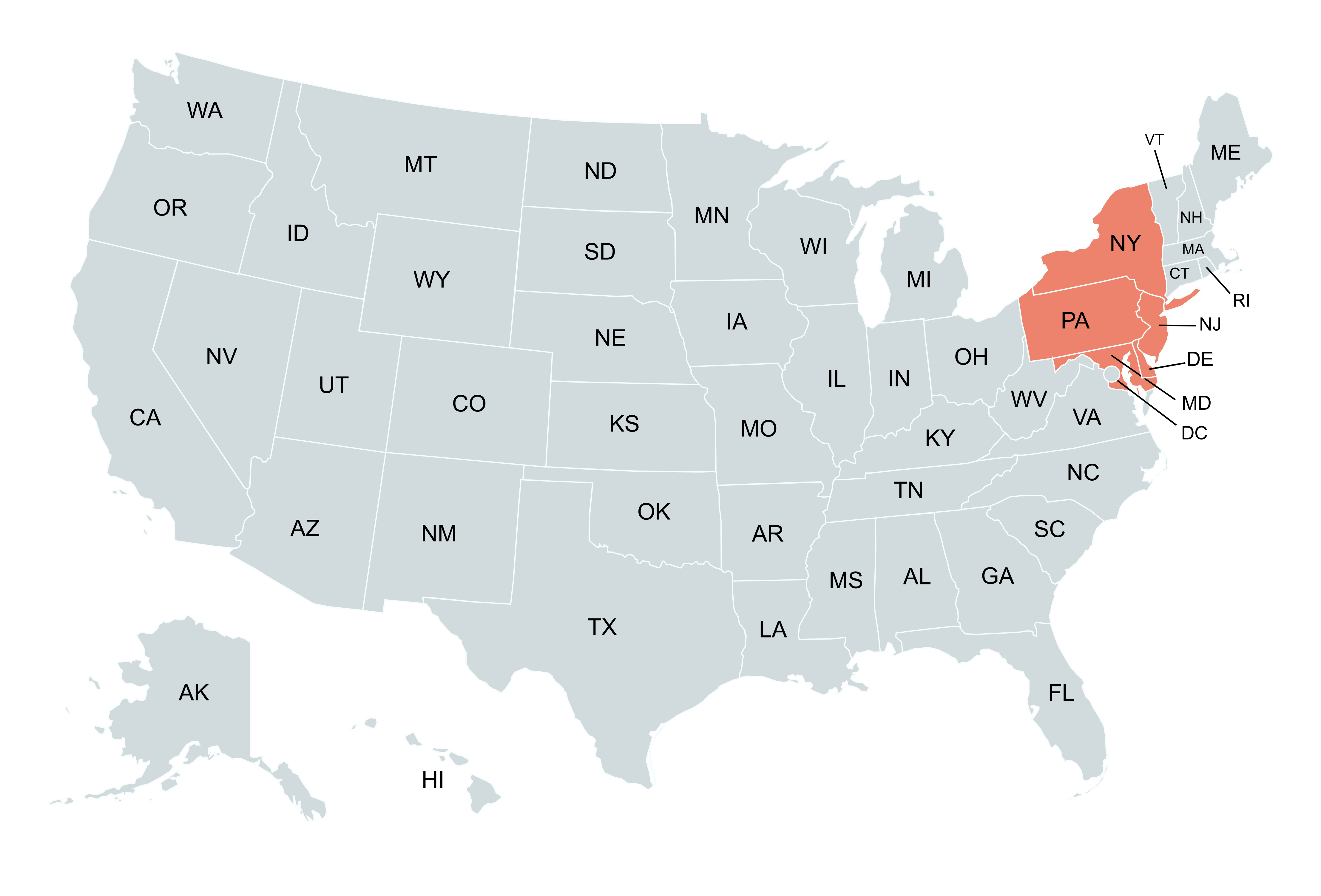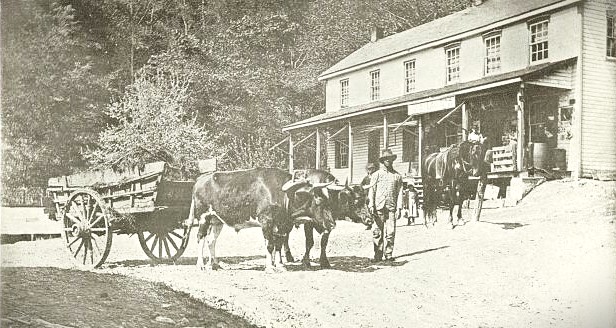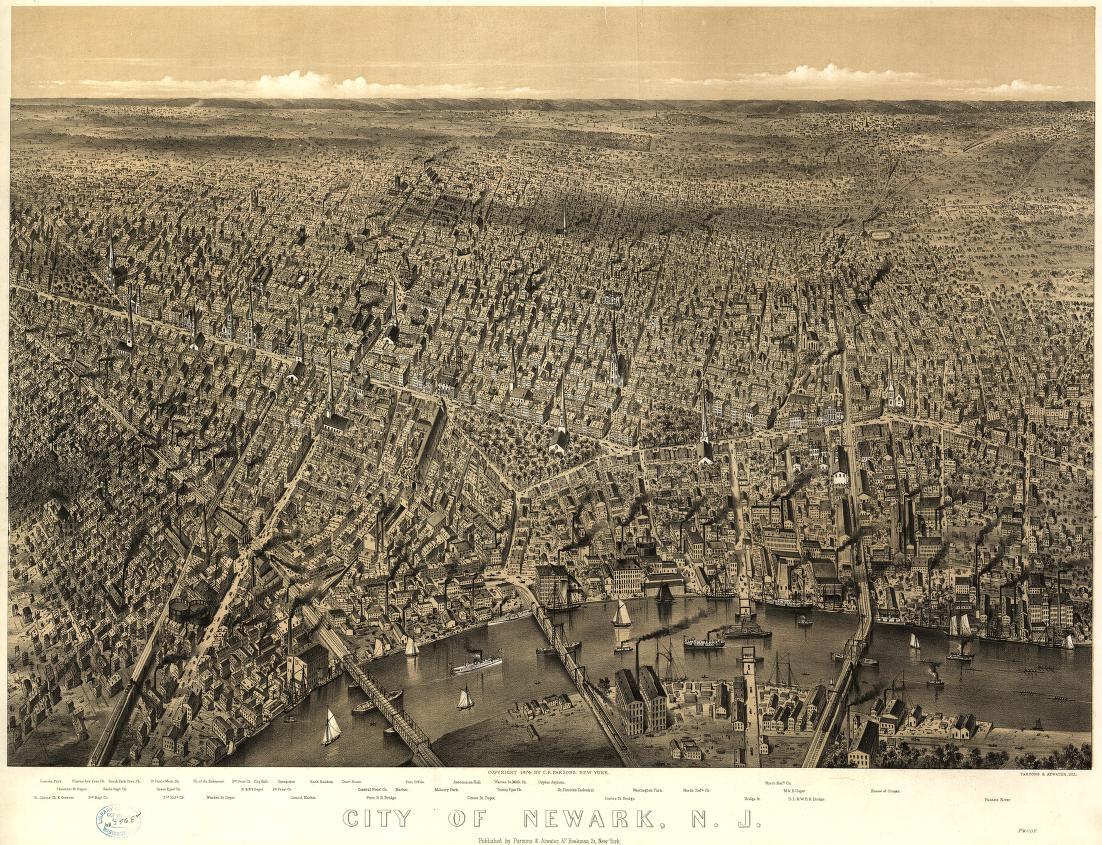The Mid-Atlantic States, Delaware, Maryland, New Jersey, New York, and Pennsylvania, occupy a central place in early American history and genealogy. These five states witnessed some of the first European settlements, Revolutionary War battles, immigrant arrivals, and urban industrial growth. As a result, the Mid-Atlantic offers an incredibly rich and diverse set of genealogical records, spanning colonial times through modern history.
Whether your ancestors were Dutch settlers in New Netherland, Quakers seeking religious freedom in Pennsylvania, African Americans living in early free communities, or immigrants arriving through New York Harbor, the Mid-Atlantic region holds a powerful key to discovering your family’s past.

From colonial settlements to industrial supercities, the Mid-Atlantic’s development mirrors the American story in miniature. These states were among the first to be settled and fought over, and became central to political, religious, and economic transformation across centuries.
The Mid-Atlantic region was a birthplace of American democracy, migration, and commerce. Colonized by Dutch, English, Swedes, and Germans as early as the 1600s, this area became a mosaic of cultural and religious diversity. New York was once New Netherland, a Dutch colony that later became a British stronghold. Delaware and Maryland were early colonies with contested borders and deep ties to plantation economies and shipping. New Jersey bridged the North and South, while Pennsylvania offered refuge to Quakers and German pietists, establishing a long tradition of tolerance and immigration.
The region’s urban centers—Philadelphia, New York City, Baltimore, Newark, and Wilmington—grew into major commercial and industrial hubs during the 18th and 19th centuries. These cities attracted waves of immigrants from Ireland, Italy, Germany, Eastern Europe, and beyond. The ports of New York and Philadelphia served as primary entry points for millions of newcomers.
The Mid-Atlantic also played a central role in the Revolutionary War, the Civil War, and the abolitionist movement. Many African American families established free communities in these states long before emancipation, leaving behind early church and legal records of resilience and resistance.
Today, the Mid-Atlantic is a layered genealogical landscape—home to some of the earliest American records, the most densely populated colonial towns, and dynamic communities that helped shape the United States.

Understanding which records exist and when they began is the first step to researching your family in the Mid-Atlantic. Fortunately, this region offers some of the most comprehensive record sets in the country.
Building a family history in the Mid-Atlantic region requires navigating a wide range of archival materials. These states boast some of the earliest and most complete record sets in the country. Vital records (birth, marriage, and death documents) are available in many counties from the 18th or early 19th centuries, and centralized statewide registration emerged between the mid-1800s and early 1900s.
Census records, available from 1790 to 1950, provide a structural framework for tracing households over time. However, many of these states also conducted their own state censuses, particularly in New York and New Jersey, offering additional data points in off-cycle years.
Genealogists benefit from extensive collections of church and synagogue registers, especially for pre-1850s events not covered by civil authorities. Denominations such as Anglican, Lutheran, Reformed, Methodist, Catholic, and Jewish congregations maintained detailed records of baptisms, marriages, burials, and confirmations.
Land deeds, wills, and probate records are often well-preserved and critical for identifying familial ties across generations. Urban records such as city directories, naturalization papers, tenant lists, and newspapers bring urban ancestors to life. Immigration researchers can access detailed passenger arrival records through New York and Philadelphia ports as early as the 1820s.
Genealogists researching African American families can find records tied to manumissions, Freedmen’s communities, and Black church networks, especially in Maryland and Pennsylvania. The region’s role in the Underground Railroad left traces in Quaker minutes, court cases, and abolitionist publications.
Each Mid-Atlantic state has a different timeline for civil registration of births, marriages, and deaths. Understanding when official recordkeeping began will help you target your research and know where to look for gaps.
Vital recordkeeping in the Mid-Atlantic states reflects the region’s early development and decentralized record traditions. Pennsylvania and New York have some of the oldest church-based records in the country, while Delaware, Maryland, and New Jersey transitioned into centralized systems later in the 19th century.
New York’s statewide birth, death, and marriage registration did not begin until the 1880s, and compliance was uneven until well into the 20th century, though New York City followed a separate and often earlier timeline. Pennsylvania started official birth and death registration in 1906, but many counties and churches documented events long before then. Maryland began registering vital records in 1898, with Baltimore keeping earlier city-based registers. Delaware’s statewide system began in 1913, and New Jersey standardized its registration in 1848, making it one of the earliest adopters.
Despite variability, all five states now maintain extensive digital archives or microfilmed collections of historical records. County courthouses, church archives, and historical societies remain essential repositories for pre-registration data, especially for 18th- and early 19th-century events.
.png)
From early church records in Delaware to German-speaking congregations in Pennsylvania, each state in the region brings unique strengths to your family research.
Delaware, the first state to ratify the U.S. Constitution, offers genealogists colonial court records, 18th-century church documents, and vital records beginning in the mid-19th century. With its small size and centralized archives, Delaware’s records are highly accessible.
Maryland is home to some of the oldest church and land records in North America. Its colonial legacy, African American communities, and immigration history make it rich ground for genealogy. Baltimore’s early recordkeeping supplements the later statewide systems.
New Jersey was one of the first states to adopt statewide civil registration in 1848. With its dual colonial roots (Dutch and English), researchers can find an array of early town records, Quaker meeting minutes, and Dutch Reformed church registers.New York holds vast genealogical value, with its complex history of Dutch, British, and immigrant governance. Though statewide registration lagged,
New York City and upstate counties often have their own robust early records. Immigration through Ellis Island adds a global dimension.
Pennsylvania stands as one of the richest genealogical landscapes in the U.S. Its early Quaker, German, and Scotch-Irish populations generated detailed church and legal documents. Philadelphia archives and German-speaking congregations provide vital data spanning back to the 1600s.
In major Mid-Atlantic cities, local recordkeeping often outpaced statewide systems, providing earlier and more detailed documentation, especially valuable for immigrant and working-class families. Major urban centers such as New York City, Baltimore, Philadelphia, Newark, and Pittsburgh maintained their own independent recordkeeping systems, often long before their states implemented centralized registration. These cities, shaped by dense populations, early civic development, and enormous waves of immigration, produced a wealth of documentation essential for understanding the lives of ancestors who lived in or passed through these metropolitan areas.
In New York City, vital registration began much earlier than in the rest of New York State. The city started recording births and deaths in Manhattan in 1847, with registration expanding to the other boroughs following the city’s consolidation in 1898. Today, the five boroughs—Manhattan (New York County), Brooklyn (Kings County), Queens (Queens County), The Bronx (Bronx County), and Staten Island (Richmond County)—each have distinct archival histories but are unified under the city’s Department of Records and Information Services. New York’s Municipal Archives preserve an extensive set of materials including coroner’s inquests, almshouse records, immigrant hospital logs, and naturalizations processed by city courts. Because it was the nation’s most prominent immigration gateway, genealogists can also access rich collections of passenger arrival lists, tenement housing records, and ethnic church archives that reflect its extraordinary diversity.
Baltimore, Maryland’s largest city, began recording birth and death records in 1875, preceding the state’s own registration system. These city-specific records, managed by Baltimore’s Health Department, remain vital for researchers tracing families in the late 19th and early 20th centuries. Baltimore also boasts early Catholic, Lutheran, and African American church records, as well as long-running city directories dating back to the 1800s. The city’s history as a Southern port adds genealogical value for those researching formerly enslaved individuals, freed communities, and manumission documents.
In Philadelphia, the Board of Health began documenting births and deaths in 1860, predating Pennsylvania’s statewide system by nearly half a century. These records, along with naturalization papers, pauper burial lists, and orphanage files, are housed at the Philadelphia City Archives. Quaker records are especially valuable here, with meeting minutes and membership rolls offering genealogical insights that predate and complement civil documentation. A deep archive of local newspapers also provides valuable context through obituaries, marriage announcements, and community events.
Newark, New Jersey, maintained a detailed civic archive alongside the state's early statewide registration beginning in 1848. The city’s ethnic and religious diversity is reflected in Catholic diocesan collections, Jewish historical society archives, and city health records. Newark’s records also document working-class neighborhoods, immigrant aid societies, and housing developments during waves of immigration and industrialization.
Pittsburgh, Pennsylvania’s industrial heart, preserves vast documentation from its working-class and immigrant populations. With robust church archives, labor union collections, and cemetery registries, Pittsburgh offers a window into Eastern European, German, Irish, and African American communities. The Heinz History Center and University of Pittsburgh libraries hold extensive digitized and manuscript sources, including materials in multiple European languages, funeral home records, and steel mill employment rolls.
Together, these cities offer urban genealogists unmatched access to early, detailed, and localized records that often predate and surpass what’s available at the state level. For those with ancestors in the Mid-Atlantic’s major metro areas, these city-specific repositories provide essential pathways into richly textured family stories.

The Mid-Atlantic region is where American family stories first took root. From colonial settlers and enslaved people seeking freedom, to industrious immigrants and abolitionists, this region reflects the soul of American transformation. The records preserved here, both rural and urban, reveal stories of resilience, community, and change.
Whether you’re exploring ancestors who arrived at Ellis Island, tracing Revolutionary War veterans, or documenting early religious dissenters, the Mid-Atlantic states offer a wealth of historical and emotional depth. These are not just records, they are living fragments of a shared national journey.
Delaware, Maryland, New Jersey, New York, and Pennsylvania are waiting to tell your family’s story. Whether you're new to genealogy or diving deeper into long-held roots, this region provides the foundational records and rich history you need.
Contact us and start your Mid-Atlantic search today—and let your family’s legacy come to life, one record at a time.
Take the next step in your research—our team is equipped to assist with these locations and specialty areas: